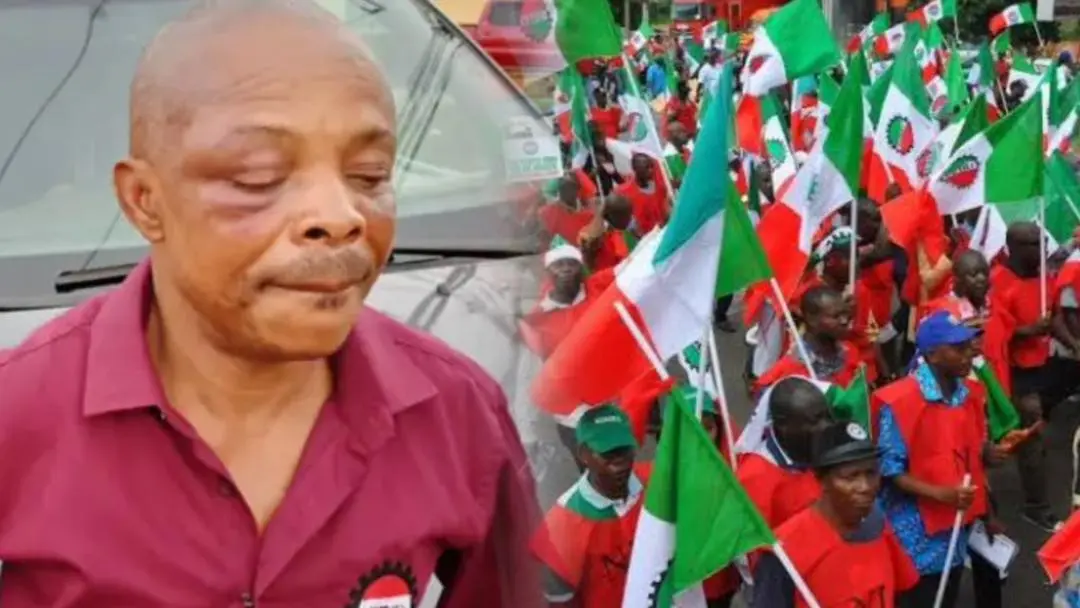By Samuel Timothy
The Department of State Services (DSS) released the NLC president Joe Ajaero, following his brief detention on allegations of economic sabotage. However, his passport was seized by the agency, a move that has raised concerns within Nigeria’s labour sector.
This development follows heightened tensions between the labour union and the Nigerian government over recent economic policies. Ajaero’s detention and subsequent release come in the wake of his critical stance on government reforms, particularly the removal of fuel subsidies and other economic issues that have sparked nationwide discontent among workers.

Ajaero, who leads one of Nigeria’s largest labour unions, has been at the forefront of labour protests against government policies perceived to be anti-worker. His recent arrest was reportedly linked to allegations of economic sabotage, a charge that his supporters argue is politically motivated to weaken the labour movement.
Joe Ajaero Passport Seizure and Labour’s Response
Upon his release, the DSS retained Ajaero’s passport, a decision that labour groups argue is an attempt to restrict his movements and further undermine the strength of the labour union. The NLC leadership quickly condemned the actions of the DSS, claiming the arrest and passport seizure are intimidation tactics to silence opposition against controversial economic measures.
In response, labour leaders and supporters gathered at the NLC headquarters to demonstrate their solidarity with Ajaero. Labour officials emphasized that these measures are counterproductive and will not deter their ongoing efforts to push for economic reforms that favour Nigerian workers.
The seizure of Ajaero’s passport adds to a growing list of tensions between the Nigerian government and the labour movement. It comes just days after the NLC threatened to shut down critical economic sectors in protest of what they describe as government insensitivity to the plight of workers.
Tensions Over Economic Policies
The NLC has consistently opposed the government’s economic policies, particularly the removal of fuel subsidies, which labour leaders argue has worsened the standard of living for many Nigerians. Ajaero has been vocal in his criticism, demanding that the government reverse certain economic decisions that disproportionately affect workers.
The recent arrest of the NLC president is viewed by many as part of a broader strategy to weaken the influence of the labour movement. However, it remains to be seen how this situation will unfold as labour leaders continue to mobilize their members and call for accountability from the government.
The continued detainment of Ajaero’s passport, coupled with his initial arrest, may further escalate tensions, especially as the NLC prepares for more protests in the coming weeks. Labour unions across the country are rallying in support of their leader, and it is likely that further industrial actions will be announced in response to what they see as a government crackdown on legitimate protest activities.
How the situation unfolds will depend largely on the NLC’s next steps and the government’s response to the growing unrest. Labour’s resolve seems unshaken, but the outcome of this conflict could have far-reaching consequences for both the union and the country’s political landscape.


















